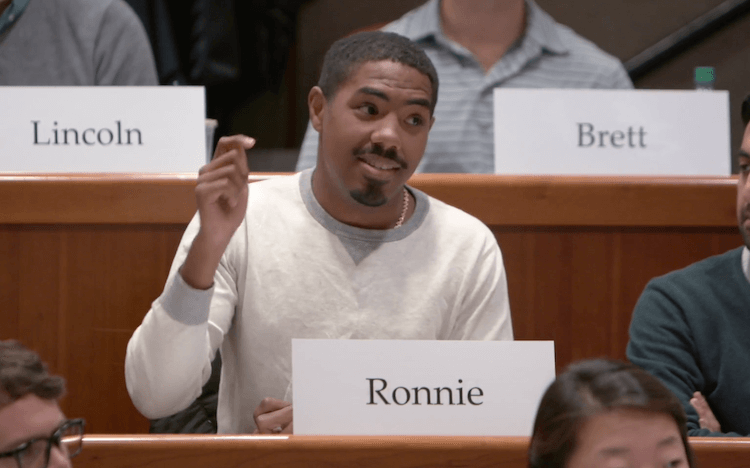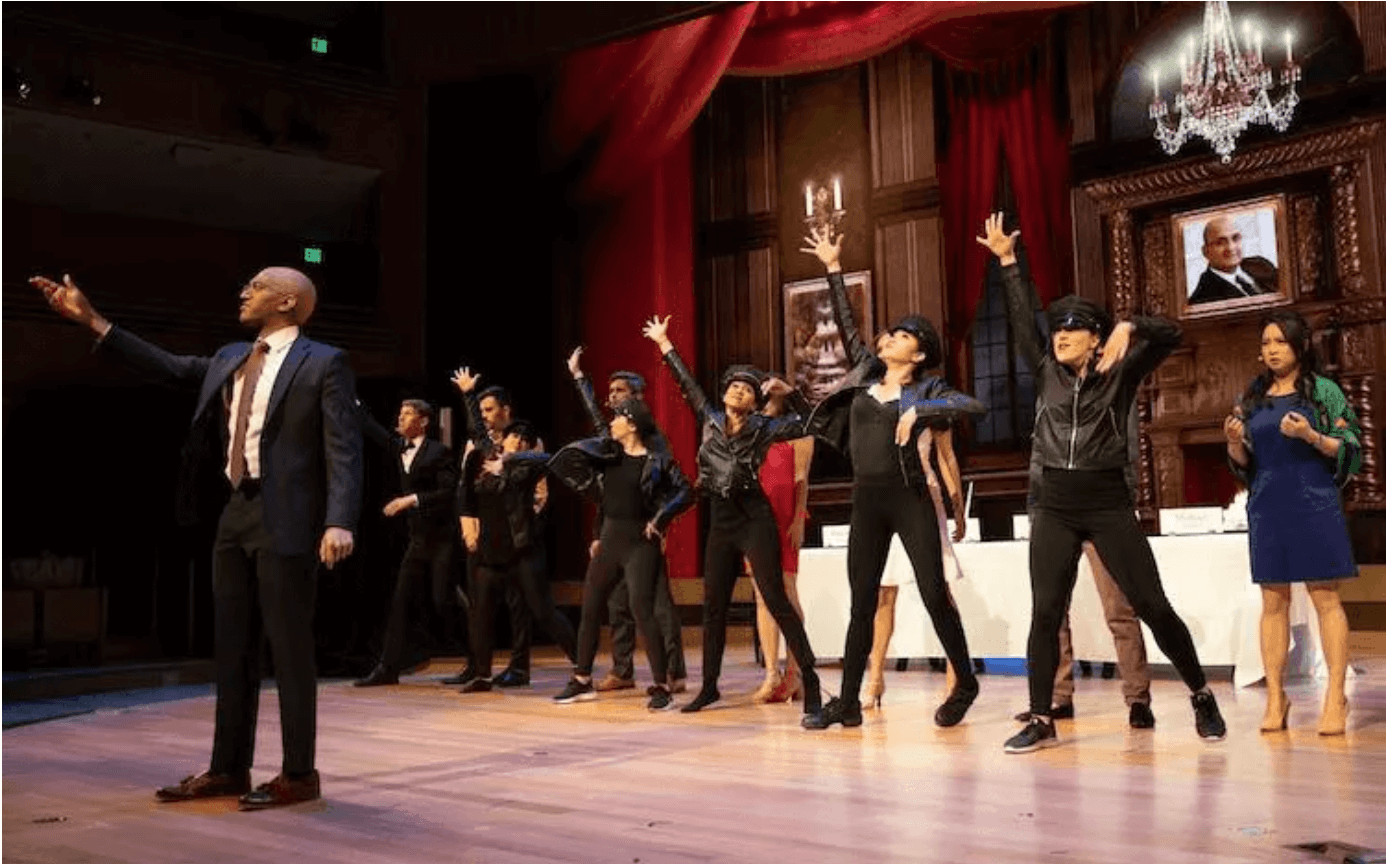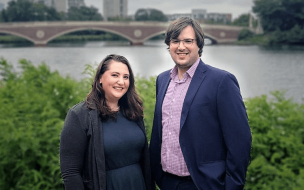Faced with a difficult decision to make in front of a packed room, with a limited amount of time and information, Harvard Business School's case method recreates some of the more challenging aspects of a post-MBA career.
Pioneered by HBS faculty, the case study method is now adopted by dozens of business schools around the world. Students become the protagonist in real life business challenges, and must apply what they have learned to argue for the right course of decision making. Dilemmas are subjective, and could require any number of perspectives and strategies to be solved, while soft skills like communication are key.
Recent cases put students in the shoes of Tesla founder Elon Musk, considering how to scale up production profitably while launching new products; or in the seat of new McDonald's CEO Chris Kempczinski, battling to maintain the company's brand while remaining relevant to younger consumers.
We spoke to current Harvard MBA student Ronnie Wimberley (MBA 2021), who tells us what they learned about leadership from the HBS case method.
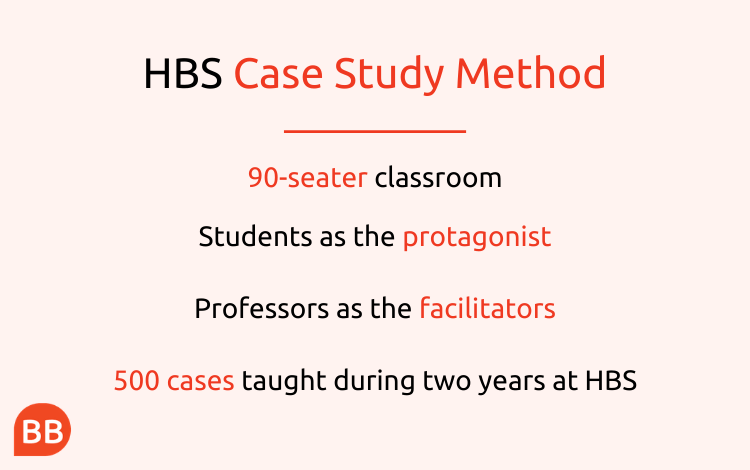
Drawing the most out of people
Far from monotonous, lengthy lectures in vast auditoriums, Harvard’s case method is a far more active experience which relies on debate, discussion, and disagreement. One main outcome is that the responsibility for learning shifts from the professor to be shared by the student.
As the protagonist in each case, students are responsible for contributing their own perspectives to drive forward discussion, all aided by the diversity of the HBS classroom.
“The HBS experience is intentionally designed so that students who have unique perspectives can all sit in a room together,” Ronnie reveals.
This is both in terms of profession—mixing personalities from everything from operating companies in manufacturing and consumed packaged goods to startup founders, to finance and consulting, to non-profit and the military—as well as identity and background.
It was the importance HBS places on bringing together unique student voices that attracted Ronnie to the school in the first place, and they believe it plays a vital role in the learning process.
Diversity in the classroom doesn’t necessarily create harmony. Conversely, disagreement is crucial to the learning process, and this is where the role of the professor as facilitator comes in.
“Professors really set up the classroom so that we can respectfully push past the ‘niceties’ of discussions, and get to disagreements that help us all learn,” they explain.
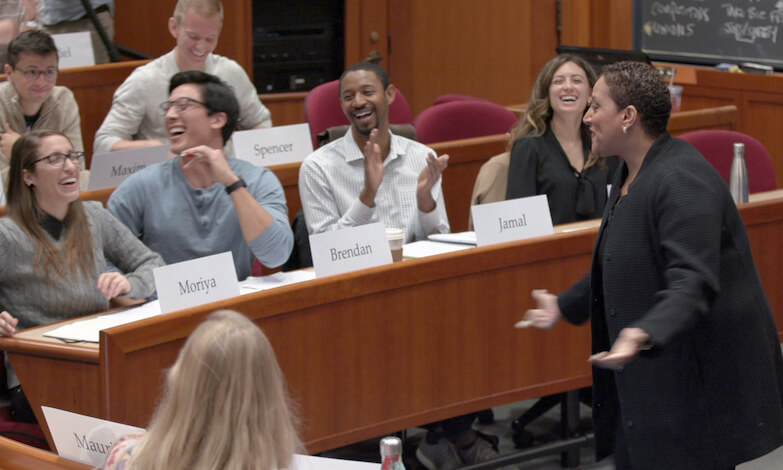
Bringing your own identity to leadership
One common criticism of the case study method is that certain subjects and topics, which are more objective and concrete, could more easily be taught in a lecture. To that, Ronnie responds, the things you learn in the case study method couldn’t be recreated in a lecture.
“What students learn in a case classroom is so dependent on the backgrounds and perspectives of their peers,” Ronnie says.
“Students share a way of thinking and being that naturally goes far beyond what the professor could do on their own.”
As a queer person of color who is a first generation college graduate, Ronnie knew they would bring a unique voice and perspective to classroom discussions.
“The kind of perspective that I'm going to bring to conversations is more likely to be unique and informed by experiences that other people won't have had.”
One of the most memorable case discussions Ronnie recalls was about a South African mining company trying to prevent the deaths of its miners. While the case addresses the clear moral question of a highly unsafe workplace, it was through the case discussion that Ronnie’s class uncovered the deeper themes that the case touched on.
Ronnie’s own identity, as well as their familiarity with discussions about marginalization, helped them shift the dialogue and pose some alternative questions.
“It moved into a conversation where we think about how we as leaders go about addressing structural inequality, and thinking about what our role is in structural inequality,” they recall.
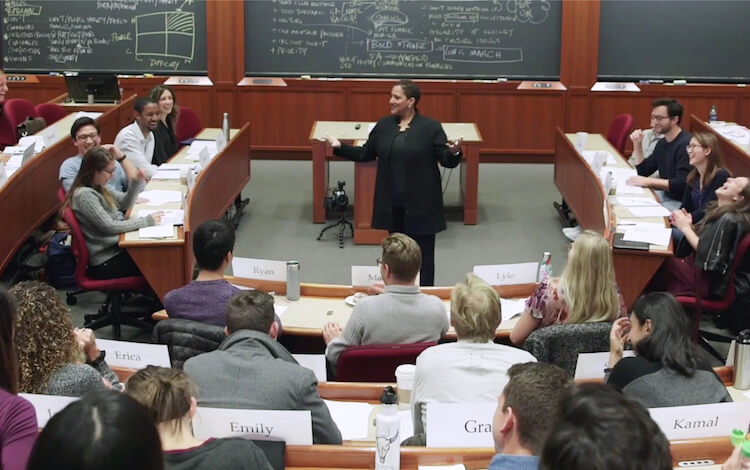
Enhancing soft skills
Ronnie is already understanding the impact that the case study method has had on their job skills and profile.
One example is how they approach ambiguity and difficult questions. Before HBS, Ronnie was a consultant, first at Boston Consulting Group, then at The Bridgespan Group. When a tough question or situation arose, Ronnie had a tendency to defer to the partner.
The Harvard case method has taught them to make those decisions with confidence.
“The intention is to simulate the position of needing to make decisions quickly and thoughtfully, even when you don't have time to do the deep research yourself. It's about how do you thoughtfully approach decision making in a way that is inclusive and informed,” Ronnie says.
HBS students are studying and discussing cases several times a day, for two years: it’s like developing a muscle, Ronnie believes.
Even more valuable has been an appreciation of the importance of listening in leadership. They talk about the idea of “existing in dialogue”—not just making your point and switching off, but listening to and responding to the other person’s response.
Given Ronnie’s aspirations are to work at the cross section of public and private sectors, to mitigate growing inequality, dialogue is going to be particularly important.
“It’s important to be able to communicate with and connect with people with different perspectives, and to understand those perspectives, in order to be a persuasive and impactful leader. One who can lead across lines of difference, and lead with interest of others in mind.”
Read More: 6 Things You'll Gain From The Harvard MBA
Images featured in the article are credited to Harvard Business School


